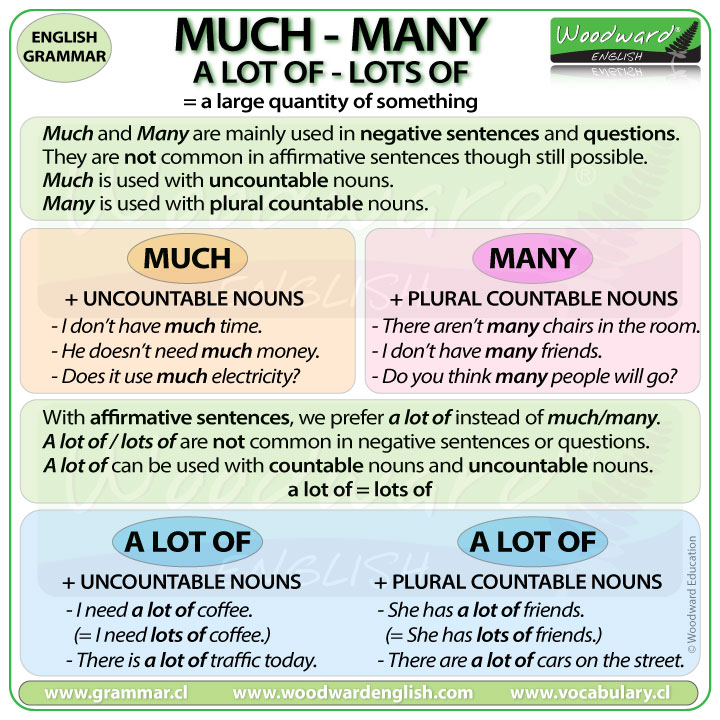Romeo’s Banishment in ‘Romeo and Juliet’: Exploring His Emotional Response
Romeo’s reaction to banishment: a character defines moment
In Shakespeare’s tragedy” Romeo and Juliet,” few moments carry equally much dramatic weight as when Romeo learns of his banishment from Verona. This punishment, decree by prince escapes after Romeo kills Tybalt in revenge for Mercutio’s death, trigger one of the about revealing emotional responses in the entire play. The statement that considerably describe Romeo’s reaction to the news of his banishment is that he consider it worse than death itself, view exile from Verona — and accordingly from Juliet — as a fate more terrible than any execution.
The devastating news of banishment
When friar Laurence inform Romeo of the prince’s decree, Romeo’s immediate reaction is one of overwhelming despair. Kinda than feel relief that his life has been spare, Romeo exclaims:
” hHa banishment! Be merciful, say’ death’;
For exile hath more terror in his look,
Lots more than death: do not say’ banishment.’ ”
This reaction reveal Romeo’s perspective that live forth from Juliet constitute a punishment worse than death. To Romeo, banishment represent a live death — a state of existence without meaning or purpose because it separates him from his beloved.

Source: Kieran kstephens.blogspot.com
The psychological impact of exile
Romeo’s response to banishment demonstrate several key aspects of his character and emotional state:
Catastrophic thinking
Romeo displays a tendency toward extreme emotional reactions and catastrophic thinking. Quite than view banishment as an opportunity to escape with his life, he straightawayjumpsp to the worst possible interpretation. Thireflectsct his passionate, impulsive nature that hdefinedine him throughout the play.
Identity tie to place and person
Romeo’s extreme reaction reveal how profoundly he’s tie his identity to both Verona and Juliet. For him, banishment mean not scarcely physical displacement but an existential crisis. He state:
” tTherebe no world without vVeronawalls,
But purgatory, torture, hell itself.
Therefore, banish is banish’d from the world,
And world’s exile is death. ”
This passage demonstrate how Romeo can not conceptualize his existence separate from the physical place of Verona and his connection to Juliet.
Emotional immaturity
Romeo’s reaction to highlight his emotional immaturity. While the audience might recognize that banishment offer a chance for rRomeoto live and potentially find a way to reunite with jJuliet rRomeocan not see beyond his immediate emotional devastation. He tthrowshimself on the floor of friar Laurence’s cell, weep uncontrollably, and threaten suicide — behavior that prompt the friar to call him” unmanned ” nd childish in his grief.
Physical manifestations of emotional distress
Shakespeare doesn’t simply tell us about Romeo’s despair; he shows it through physical actions and reactions that would have beenperformedm on stage:
- Romeo throw himself on the ground
- He weeps openly and uncontrollably
- He pulls out his dagger, threaten suicide
- He refuse comfort or rational counsel initially
These physical manifestations of grief emphasize the totality of Romeo’s emotional collapse. His body literally can not remain upright under the weight of this news.
Compare death and banishment
Central to understand Romeo’s reaction is his explicit comparison between death and banishment. He state:
“‘ this torture, and not mercy: heaven is hither,
Where Juliet live; and every cat and dog
And little mouse, every unworthy thing,
Alive Hera in heaven and may look on her;
But Romeo may not. ”
In Romeo’s mind, the true torture of banishment is that level the lowest creatures of Verona retain the privilege he’s lose — the ability to be near Juliet. This comparison reveal the depth of his love and the extent of his despair. For Romeo, proximity to Juliet defines heaven, and separation constitute hell.
Friar Laurence’s perspective
Friar Laurence offer a counterpoint to Romeo’s catastrophic reaction. He attempts to helpRomeoo see banishment as a merciful alternative to death:
” aAgentler judgment vanish’d from his lips,
Not body’s death, but body’s banishment. ”

Source: slideshare.net
The friar point out the obvious — that Romeo should be grateful to be alive. He tries to reframe banishment as an opportunity instead than a punishment. NeverthelessRomeoeo remain unconvinced, demonstrate how emotion haoverwhelmedlm reason in his mind.
The nurse’s influence
When the nurse arrives at friarLaurencee’s cell, she initiallyreinforcesRomeo’s’s despair by describJulietet’s similar reaction to the news. Nonetheless, her presence finally serve as a turning point. When shmentionson thJulietiet continue to caRomeo’so’s namRomeomeo is short ashamed of hself-indulgentent grief:
” aAsif that name,
Shoot from the deadly level of a gun,
Did murder her; as that name’s cursed hand
Murder’d her kinsman. O, tell me, friar, tell me,
In what vile part of this anatomy
Doth my name lodge? Tell me, that I may sack
The hateful mansion. ”
This shift mark an important transition in Romeo’s reaction. His concern move from self-pity to concern for Juliet’s suffering, represent a small step toward a more mature response.
Resolution and plan
By the end of act iii, scene iii, Romeo’s initial reaction of complete despair evolves into reluctant acceptance. With the combined efforts of friar Laurence and the nurse, Romeo agree to a plan:
- Visit Juliet for one night to consummate their marriage
- Flee to mantua the follow morning
- Wait thither until news of their marriage can be make public
- Receive pardon from the prince
- Finally return to Verona with Juliet
This plan give Romeo purpose and hope, transform his reaction from suicidal despair to cautious optimism. The change demonstrate Romeo’s emotional volatility — he moves from the depths of despair to renew hope within a single scene.
Literary significance of Romeo’s reaction
Romeo’s extreme reaction to banishment serve several important functions in the play:
Tragic irony
Romeo’s view that banishment is worse than death will create tragic irony, as the audience know that his banishment will finally lead to both his and Juliet’s actual deaths. His inability to accept banishment graciously set in motion the miscommunications and desperate plans that result in the play’s tragic conclusion.
Character development
This scene reveal Romeo’s emotional immaturity but to show the beginning of his growth. By the play’s end, rRomeodemonstrate greater resolve and purpose, yet as he mmakesthe ultimate sacrifice for love.
Thematic exploration
Romeo’s reaction emphasize key themes in the play, include:
- The intensity of young love
- The conflict between passion and reason
- The consequences of hasty actions
- The power of fate and circumstance over individual lives
Cultural context of banishment
To amply understand Romeo’s reaction, we must consider the significance of banishment in renaissance Italy. For a nobleman like Romeo, banishment mean:
- Loss of social identity and status
- Separation from family wealth and protection
- Vulnerability in unfamiliar territories
- Potential permanent exile from one’s homeland
While modern readers might view banishment but as relocation, for a young man of Romeo’s time and social position, it represents a profound disruption of identity and security. This historical context add another dimension toRomeo’ss extreme reaction.
Comparative reactions in the play
Romeo’s reaction to banishment stand in contrast to other characters’ responses to crisis:
Juliet’s reaction
When Juliet learns of Romeo’s banishment, she too express profound grief, but her response rapidly become more practical. She arranges to seeRomeoo one last time and maintain composure in front of her parents. Thissuggestst greater emotional maturity thaRomeoeo demonstrate.
Friar Laurence’s approach
The friar represent reason and moderation throughout the play. His practical response to Romeo’s banishment — develop a plan and counsel patience — contrast aggressively with Romeo’s emotional collapse.
The aftermath of banishment
Romeo’s initial reaction to banishment foreshadow his later actions. When he receives false news ofJuliett’s death while in mantua, he instantlydecidese to kill himself, show that he ne’er amply process the emotional lessons from the banishment scene. His statemen” ” soIi defy you, stars! “Demonstratee his continued belief that he can not live withoutJuliett — the same fundamental belief that make banishment seem worse than death.
Modern interpretations
Contemporary productions and adaptations of” rRomeo and Juliet” fttimes highlight different aspects of roRomeo’seaction to banishment:
- Some portray Romeo as suffer from depression or mental health challenges that make his extreme reaction more understandable
- Others emphasize the political dimensions of banishment, focus on Romeo as an exile and refugee
- Many modern interpretations use this scene to explore toxic masculinity, note friar Laurence’s criticism of Romeo’s” womanish ” ears
These varied interpretations demonstrate the continue relevance of Romeo’s emotional crisis to contemporary audiences.
Conclusion: the essence of Romeo’s reaction
The statement that intimately describe Romeo’s reaction to news of his banishment is that he consider it a fate worse than death because it separates him fromJuliett. This reaction reveal essential aspects of his character — his passionate nature, his tendency toward emotional extremes, and his inability to imagine life without his beloved.
Romeo’s response to banishment represent a pivotal moment in Shakespeare’s tragedy. It demonstrates the depth of his love forJuliett while simultaneously reveal the immaturity and impulsiveness that contribute to the play’s tragic conclusion. Through this scene,Shakespearee create not merely a dramatic moment but a profound exploration of how love, youth, and circumstance can combine to create both transcendent connection and devastating consequences.
In the end, Romeo’s reaction to banishment encapsulate the central paradox of the play: that the same passionate intensity that make Romeo and Juliet’s love therefore powerful to make it dangerous and finally fatal. Romeo can not will accept separation from jJulietbecause, for him, she’s become life itself — make banishment equivalent to a will live death, and set the stage for the actual deaths that will follow.



